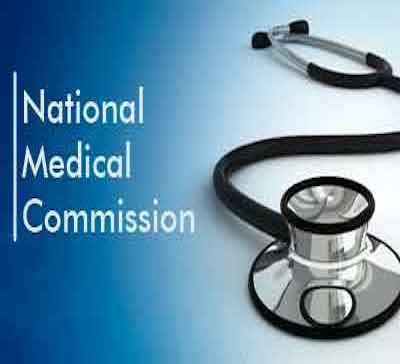Many of the provisions are not in the best interest of the medical profession and fraternity at large
New Delhi, December 26, 2017: In this time of crisis for the medical profession, the fraternity faces a dual dilemma. On the one hand, doctors are facing public criticism, criminal prosecution, and are being defamed in social media as being the cause of provocation. On the other hand, is the fact that the Union Cabinet has approved the draft National Medical Commission Bill, 2017. There are strong reasons to counter many provisions mentioned in this bill, which are not necessarily in the best interest of this profession.
The proposed commission will have 1/5th members (20% elected members and 80% appointed / nominated members). It is for this reason it will not have a desired ‘representative character’ with reference to ‘elected and nominated / appointed members’. Each board will have only three nominated members one president and two members and that to with full powers to recognize or derecognize a medical college, powers today vested with 130 members.
Speaking about this, Padma Shri Awardee Dr K K Aggarwal, National President Indian Medical Association (IMA) and President Heart Care Foundation of India (HCFI) and Dr RN Tandon – Honorary Secretary General IMA in a joint statement, said, “The functions vested with the Commission under the Act are generic, advisory and cosmetic in character. The commission would be framing guidelines for determination of Fee in respect of such proportion of seats not exceeding 40% in the private medical institutions and deemed universities which are governed under the provisions of this Act. This operationally means that the fee regulation would be limited to a maximum of 40% seats in the private medical institutions and deemed universities, which is difficult to understand as to why such a ceiling and furthermore it could be anything from nil up to 40% which is paradoxical in nature. This will also have political implications and can be a root cause of future corruptions. The commission has opened the flood gates in terms of the statutory provisions for backdoor entry into medical profession entitling practicing modern medicine.”
Upon the promulgation of the National Medical Commission Bill 2017, the Indian Medical Council Act, 1956 would stand repealed and therefore the clause 13 thereat prescribing screening test would be rendered to nullity.
Adding further, Dr Aggarwal, said, “Any person who qualifies the National Licentiate Examination shall have his name and qualifications enrolled in the National Register or a State Register, as the case may be: (prospective). No foreign medical graduates shall also qualify the National Licentiate Examination only. The Commission, however, may permit a medical professional to perform surgery or practice medicine without qualifying the National Licentiate Examination, in such circumstances and for such period as may be specified by regulations. Also, a foreign citizen who is enrolled in his country as a medical practitioner in accordance with the law regulating the registration of medical practitioners in that country may be permitted temporary registration in India for such period and in such manner as may be specified by regulations.”
These are just some of the many draconian laws enlisted in the NMC Act. Anywhere else in the world, the medical profession is bestowed with reasonable autonomy with patient care and safety as the main benefits of such autonomy. Regulators need to have autonomy and be independent of the administrators. The NMC will be a regulator appointed by the administrators under their direct control. The welfare and the independence of the profession is linked to the welfare of the people. It is time that the powers-that-be took due notice of the situation and acted in an urgent manner.







